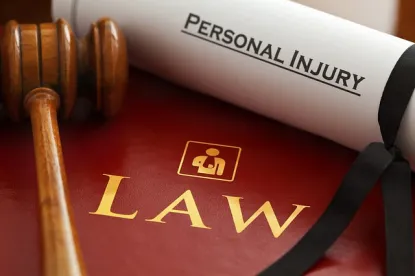Off-Highway Vehicles ("OHVs"), specifically All-Terrain Vehicles ("ATVs") and Utility Terrain Vehicles ("UTVs"), are prevalent throughout North Carolina.
These vehicles come in an array of styles and can differ in their functions. People use these vehicles for farming, transportation, hunting, and pleasure. ATVs can be both useful and entertaining.
However, ATVs can also be very dangerous. Many of these vehicles reach speeds of up to 60 mph. Some models have seatbelts or other additional safety equipment, while others lack this equipment. In 2018, there were approximately 81,800 ATV-related injuries requiring emergency department treatment nationwide.
ATVs have a high risk for rollover, especially when an ATV hits a ditch, large rock, or even a minor dip in the ground. Driving these vehicles in dangerous weather conditions, such as rain, snow, or ice, may also increase the rollover risk.
North Carolina ranked as the 9th highest state for ATV-related fatalities, reporting 458 ATV-related fatalities between 1982 and 2014. Tragically, from 2015 to 2017, North Carolina jumped to the 7th highest state for ATV-related fatalities, with 68 ATV-related fatalities (3% of the deaths reported nationwide).
Because driving ATVs and other OHVs can be a fun way to explore the outdoors, it is common for children and teenagers to operate them, but this can be dangerous. From 2015 to 2019, approximately 524,600 OHV accidents resulted in emergency department-treated injuries in the United States. Of those 524,600 OHV accidents, 70,300 children under 12 years old were injured (around 13% of all injuries), and 140,000 children under 16 years old were injured (around 27% of all injuries).
Before operating any piece of potentially dangerous equipment, it is imperative to review the owner's manual, warning labels, and any risks/hazards associated with operating an ATV or other OHV. Some warning labels and owner's manuals contain an age or licensing requirements, while others may not. Some warning labels may also address the appropriate number of passengers and where they can or cannot sit.
Catastrophic injuries and potentially death may occur in an ATV accident. The physical, mental, and emotional impacts from these accidents may be temporary or permanent for survivors and their family members. The financial distress resulting from medical bills and other accident-related expenses can also be astronomical. Thus, it's imperative to be aware of the legal issues involved should you or a loved one find yourself in the unfortunate situation of being involved in an accident involving an OHV, ATV, or UTV.
Liability and Damages
As with other personal injury cases, an injured person is only entitled to recover damages from an ATV operator and/or owner of an ATV if the operator and/or owner was "at fault" for the accident. The operator and/or owner must have been "negligent" in causing the accident, and that negligence must have "proximately caused" the person's injury.
Of course, sometimes, an accident is more than one party's fault. North Carolina is one of only a few states that still recognizes the common law rule of "contributory negligence." That rule provides that if the injured party negligently contributes to the collision—even by just 1%—then the injured party cannot recover at all from the other party. This is a harsh rule that most other states have abolished. However, North Carolina also recognizes exceptions to the rule.
If the contributory negligence rule does not apply, or if one of the exceptions to the rule applies, the injured party is able to recover all damages "proximately caused" by the ATV driver's (or the owner of the ATV's) negligence. Such damages can include the cost of repairing or replacing damaged physical property, medical bills, future medical costs, lost wages, diminished future earnings, pain and suffering, scarring or disfigurement, loss of use of part of the body, or the permanency associated with any continuing injuries.
The goal of personal injury damages is to make the injured party "whole." This is obviously impossible after a serious or catastrophic loss, but the law does the best it can by awarding monetary damages to compensate, as nearly as possible, for an injured person's loss. Thus, the at-fault ATV driver, the owner of the ATV, either of their insurers, or another liable party may be responsible for paying damages for all such losses.
Topics Involved in ATV Cases
ATV cases can be particularly complicated given both the particular factual issues and legal issues that may apply.
First, there may be more parties involved in an ATV accident than a typical automobile accident. The driver of the ATV, of course, may be at fault. However, if the ATV driver is borrowing the ATV or is underage, the owner of the ATV may also be responsible. If the facts are egregious enough, the injured party may have a claim for punitive damages (additional damages meant to punish the ATV driver and/or the owner of the ATV).
Further, it is important to analyze whether additional parties may be liable—including other drivers on the roadway at the time of the accident if the ATV is operated on or near a road, the owner of the ATV if the driver is borrowing the vehicle, or even the manufacturer or distributor if the ATV has defective equipment.
A portion of the North Carolina General Statutes specifically regulates the sale and operation of ATVs. Some of these laws include age restrictions, passenger restrictions, a seller's prohibited actions, equipment requirements, an owner's/operator's prohibited actions, safety training, penalties, and exceptions.
If a lawsuit arises from an ATV accident, the litigation process can be complicated. The "discovery" process may include an inspection of the ATV's ownership records, operating system (including its brakes, muffler system, and spark arrester), operating manual(s), warning label(s), and other documentation. It also may be necessary to retain experts, such as accident reconstructionists.
As with other personal injury cases, liability insurance plays an important role. The injured party may recover under multiple insurance policies, depending on who is at-fault. The at-fault ATV driver's automobile policies, homeowner's policies, other liability policies, and/or umbrella policies may or may not be available for an injured party. If the at-fault ATV driver does not own the ATV, the owner of the ATV's applicable insurance policies may be available for the injured party. If the owner of the ATV is a business entity, the entity's insurance policies may also be available to the injured party.
If the available insurance is insufficient to cover the injured party's losses or doesn't cover a certain type of damages (such as punitive damages), the at-fault party will be individually liable. In addition to liability insurance, there may be medical payments coverage ("med pay") available in the short-term, regardless of fault, to assist with medical bills.
Conclusion
If you are in an accident involving an OHV, including, but not limited to, an ATV or UTV, you may have a viable legal claim, depending on who was "at-fault" for the accident. If you do have a claim, the monetary value of your claim will depend on the injuries involved and the damages that may be legally recoverable.
Time is truly of the essence. An experienced attorney who knows how to handle these matters can help address these issues and navigate such a challenging situation. Hiring an experienced attorney can help you or your family member recover the full extent of available damages when someone else is at fault for an ATV accident.





 />i
/>i

